IEEE Rebooting Computing Podcasts: An IEEE Future Directions Digital Studio Production
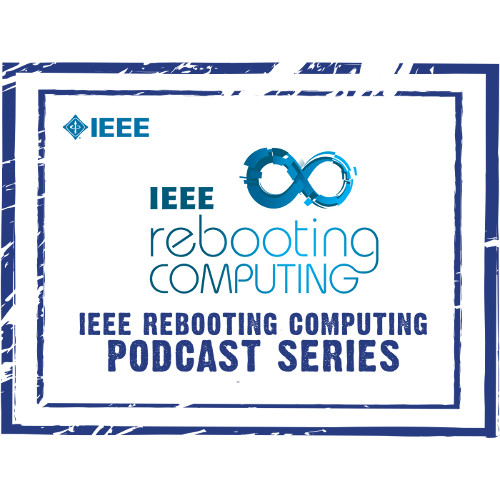
Through the IEEE Rebooting Computing Podcasts, we provide listeners with access to some of the top computing industry professionals -- from innovators to professors (and the combination of both). Our coverage includes discussions on quantum computing, neuromorphic computing, relevant events, industry trends, and so much more. We provide you with access to the industry's best of the best.
|
Episode 28: Q&A with Gabriela Cruz Thompson, Director of University Research and Collaboration in Intel Labs, Intel Corp. Gabriela Cruz Thompson, Director of University Research and Collaboration in Intel Labs, sat down with us after her presentation at the International Conference on Rebooting Computing in 2018 to discuss the future of quantum, neuromorphic computing and the computing industry in general. Gabriela shared the work Intel is doing in the industry and why she believes it is important that we continue to reboot computing. Listen to Episode 28 (MP3, 11 MB) |
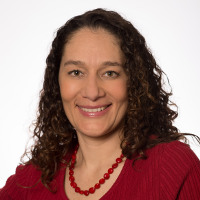 Gabriela Cruz Thompson, Director of University Research and Collaboration in Intel Labs, Intel Corp. Gabriela Cruz Thompson, Director of University Research and Collaboration in Intel Labs, Intel Corp. |
|
Episode 27: Q&A with Travis Humble, Director, Quantum Computing Institute, Oak Ridge National Laboratory; Co-Chair, IEEE Quantum What does the future of quantum hold? IEEE Quantum co-chair and Director of the Quantum Computing Institute at Oak Ridge National Laboratory, Travis Humble, sat down with us at IEEE Rebooting Computing Week last year in Washington, D.C. to discuss this very topic. He shared what he sees for the future of quantum, why businesses should focus their attention on this emerging technology and why he believes it is important to reboot computing, especially when it comes to quantum. Listen to Episode 27 (MP3, 10 MB) |
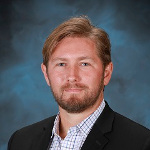 Travis Humble, Director, Quantum Computing Institute, Oak Ridge National Laboratory; Co-Chair, IEEE Quantum Travis Humble, Director, Quantum Computing Institute, Oak Ridge National Laboratory; Co-Chair, IEEE Quantum |
|
Episode 26: Q&A with Dejan Milojicic, IEEE Rebooting Computing Co-Chair and Distinguished Technologist at Hewlett Packard Labs We sat down with Dejan Milojicic, IEEE Rebooting Computing Co-Chair and Distinguished Technologist at Hewlett Packard Labs, after his presentation at the IEEE International Conference on Rebooting Computing (ICRC) in November 2018. Dejan shared where he believes the computing industry will be in the next fifteen years and how new technologies such as neuromorphic computing, quantum, and biology-inspired computing will come into play. In addition, he discussed the growth of Rebooting Computing Week and how it continues to bring participants with increased curiosity from government, industry, and academia. Last but not least, Dejan talked about his work with IEEE and how being a member ultimately helped him in his career. Listen to Episode 26 (MP3, 19 MB) |
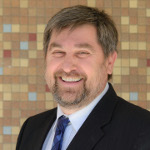 Dejan Milojicic, IEEE Rebooting Computing Co-Chair and Distinguished Technologist at Hewlett Packard Labs Dejan Milojicic, IEEE Rebooting Computing Co-Chair and Distinguished Technologist at Hewlett Packard Labs |
|
Episode 25: Q&A with Anastasiia Butko, Postdoctoral Fellow, Lawrence Berkeley National Laboratory How does a background in classical computing morph into a career focused on quantum computing? Anastasiia Butko, Postdoctoral Fellow at Lawrence Berkeley National Laboratory, shared how this happened in her career during our conversation with her at Rebooting Computing Week 2018. She also discussed why she believes classical computing devices will still be in use over the next ten or fifteen years and when she thinks quantum devices will be made available to the public. Listen to Episode 25 (MP3, 9 MB) |
 Anastasiia Butko, Postdoctoral Fellow, Lawrence Berkeley National Laboratory Anastasiia Butko, Postdoctoral Fellow, Lawrence Berkeley National Laboratory |
|
Episode 24: Q&A with Bruce Kraemer, Past President of IEEE-SA and Chair of the IEEE Industry Summit on the Future of Computing We had the opportunity to speak with Bruce Kraemer, Past President of IEEE-SA and Chair of the IEEE Industry Summit on the Future of Computing, at Rebooting Computing Week in November 2018. He discussed the next 20 years when it comes to computing, why he believes additions to digital CMOS are promising, how Quantum Computing and Analog Neuromorphic could come into play and how optical and photo optical computing will tie in as well. As a member of the IEEE for more than 30 years, Bruce Kraemer has a wealth of knowledge in multiple industries including semiconductors, developing standards and more. Listen to Episode 24 (MP3, 17 MB) |
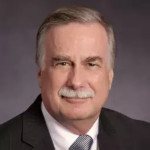 Bruce Kraemer, Past President of IEEE-SA and Chair of the IEEE Industry Summit on the Future of Computing Bruce Kraemer, Past President of IEEE-SA and Chair of the IEEE Industry Summit on the Future of Computing |
|
Episode 23: Q&A with Scott Koziol, Assistant Professor, Electrical and Computer Engineering, Baylor University Mobile robots, low-power electronics and brain inspired algorithms. How do these fields tie into the computing industry? Scott Koziol, Assistant Professor of Electrical and Computer Engineering at Baylor University, dives into just that in this podcast episode. We sat down with Scott at Rebooting Computing Week in November 2018 to discuss what he believes the future of computing holds when it comes to mobile computing platforms and robotics, why low-power, high-performance computing is essential, and where quantum computing will come into play. He also shared his excitement about working with IEEE Rebooting Computing to continue the advancement of quantum computing. Listen to Episode 23 (MP3, 11 MB) |
 Scott Koziol, Assistant Professor, Electrical and Computer Engineering, Baylor University Scott Koziol, Assistant Professor, Electrical and Computer Engineering, Baylor University |
|
Episode 22: Q&A with Natesh Ganesh, PhD Student, Electrical & Computer Engineering Dept, University of Massachusetts Amherst When it comes to artificial intelligence and the role computing plays in this ever-growing field, Natesh Ganesh, PhD Student in the Electrical and Computer Engineering Department at University of Massachusetts Amherst, has a slightly different approach. We sat down with Natesh at the IEEE International Conference on Rebooting Computing in November 2018 for an even deeper dive into his presentation. He discussed his views on the future of artificial intelligence and how building these systems might not actually involve computing in the classical sense, but instead take on a whole new framework. What are those frameworks and what are Natesh’s goals in his work? Listen to his podcast to find out. Listen to Episode 22 (MP3, 20 MB) |
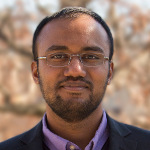 Natesh Ganesh, PhD Student, Electrical & Computer Engineering Dept, University of Massachusetts Amherst Natesh Ganesh, PhD Student, Electrical & Computer Engineering Dept, University of Massachusetts Amherst |
|
Episode 21: Q&A with Mustafa Badaroglu, Technical Director at Huawei Technologies In this podcast episode, Mustafa Badaroglu, Technical Director at Huawei Technologies and member of the International Roadmap for Devices and Systems More Moore team, gives an inside look into the More Moore IRDS™ report, how computer architecture and scaling, along with energy efficiency, are important and necessary elements when it comes to the future of computing. He also discusses how the new consumer environment brings in a whole new set of computing applications. Not only does Mustafa cover the future of computing, he also shares his views on augmented reality, virtual reality, machine learning, 5G, semiconductors, big data, 3D integration and much more. Listen to Episode 21 (MP3, 31 MB) |
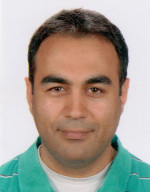 Mustafa Badaroglu, Technical Director at Huawei Technologies Mustafa Badaroglu, Technical Director at Huawei Technologies |
|
Episode 20: Q&A with Kirk Bresniker, Chief Architect and HP Fellow at Hewlett Packard Labs; Overseer of advanced development programs at Hewlett Packard Enterprise According to Kirk Bresniker, Chief Architect and HP Fellow at Hewlett Packard Labs and Overseer of advanced development programs at Hewlett Packard Enterprise, it’s not enough to just develop new computing technologies, we also have to find a way to make them sustainable, equitable, and globally available. We caught up with Kirk after his presentation at Rebooting Computing Week 2017 to hear more about his views on the future of computing, how he believes data should be at the center of our thinking when it comes to next era of computing, and what his thoughts are on Quantum Computing and other technologies. To hear from other industry leaders on what the future of computing holds, register for Rebooting Computing Week 2018 coming to Tysons, VA 5-9 November. Listen to Episode 20 (MP3, 15 MB) |
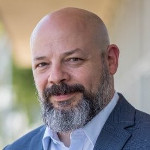 Kirk Bresniker, Chief Architect and HP Fellow at Hewlett Packard Labs; Overseer of advanced development programs at Hewlett Packard Enterprise Kirk Bresniker, Chief Architect and HP Fellow at Hewlett Packard Labs; Overseer of advanced development programs at Hewlett Packard Enterprise |
|
Episode 19: Q&A with Karlheinz Meier, Professor of Physics at Heidelberg University As a professor of physics at Heidelberg University in Germany and expert in neuromorphic computing, Karlheinz Meier is truly at the forefront of new and emerging technologies. We caught up with Karlheinz after his keynote at the 2017 IEEE International Conference on Rebooting Computing to dive even deeper into his views on neuromorphic computing, the three aspects of the brain he believes are most important, and why those aspects should be used in future computing technologies to make them successful. He also shared why it’s important to model future machine learning and artificial intelligence technologies after the human brain. To hear from other industry leaders on what the future of computing holds, register for Rebooting Computing Week 2018 coming to Tysons, VA 5-9 November. Listen to Episode 19 (MP3, 19 MB) |
 Karlheinz Meier, Professor of Physics at Heidelberg University Karlheinz Meier, Professor of Physics at Heidelberg University |
|
Episode 18: Q&A with Dillon Graham, Critical Skills Master’s Program: R&D Computer Science at Sandia National Laboratories We sat down with Dillon Graham of the Critical Skills Master’s Program: R&D Computer Science at Sandia National Laboratories, at Rebooting Computing Week in 2017 to discuss his views on the future of computing, what new technologies he thinks will usher us into a new era beyond Moore’s Law, and what he learned while at Rebooting Computing Week. Dillon shared how he believes new technologies such as neuromorphic computing, memristors, deep learning, machine learning, artificial intelligence, mixed signal and others will be future of computing. He also talked about the specific type of computing he believes will drive the industry forward over the coming years. Listen to Episode 18 (MP3, 13 MB) |
Dillon Graham, Critical Skills Master’s Program: R&D Computer Science at Sandia National Laboratories |
|
Episode 17: Q&A with Linda Wilson, Project Manager for the International Roadmap for Devices and Systems (IRDS™) with IEEE The next fifteen years in the electronic and computer industries promise to bring with them many challenges and excitements. Addressing these challenges and excitements is the International Roadmap for Devices and Systems. In this podcast, we spoke with Linda Wilson, Project Manager for the International Roadmap for Devices and Systems, to get an inside look at the 2017 Edition of the IRDS™ Roadmap, its history, where the Roadmap will go from here, and much more. Linda shares information about the global organizations IEEE is collaborating with on the IRDS™ Roadmap and how the project has turned into a worldwide effort. In addition, Linda discusses practical ways to apply what’s in the IRDS™ Roadmap reports within the electronics industry. She also shares behind-the-scenes information on future editions of the IRDS™ Roadmap, how the IEEE Standards Association is involved, and how the IRDS™ Roadmap will help to reboot computing. Linda also shares information about an upcoming set of public webinars around the IRDS™ Roadmap with the first webinar happening 28 August 2018 at 8:00 am PT/11:00 am ET. Listen to Episode 17 (MP3, 23 MB) |
 Linda Wilson, Project Manager for the International Roadmap for Devices and Systems (IRDS™) with IEEE Linda Wilson, Project Manager for the International Roadmap for Devices and Systems (IRDS™) with IEEE |
|
Episode 16: Q&A with Dan Hutcheson, CEO and Chairman of VLSI Research Inc. “No exponential is forever, but forever can be delayed," said Gordon Moore. In this podcast, Dan Hutcheson, CEO and Chairman of VLSI Research Inc., shares this quote from Gordon Moore and discusses why he doesn't necessarily see Moore's Law ending in the future. He also discusses the technologies he believes are on the horizon including Quantum Computing, Artificial Intelligence, Supercomputing and more. In addition, Dan talks about how the massive amount of data that is being produced is actually moving us away from a computer-centric world and into a data-centric world. Listen to Episode 16 (MP3, 17 MB) |
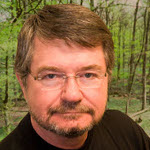 Dan Hutcheson, CEO and Chairman of VLSI Research Inc. Dan Hutcheson, CEO and Chairman of VLSI Research Inc. |
|
Episode 15: Q&A with Mark Papermaster, Chief Technology Officer and Senior Vice President of Technology and Engineering at AMD We sat down with Mark Papermaster, Chief Technology Officer and Senior Vice President of Technology and Engineering at AMD, at Rebooting Computing Week last year in Washington, D.C. to discuss the future of computing. During our interview, Mark shared what he thinks will come after Moore’s Law, the likelihood of high performance computing undergoing a mass deployment in the next five years, machine learning, and much more. Mark also talks about how we are at an incredible inflection point in the computing industry. What does that inflection point hold? Let’s listen to what Mark has to say. Listen to Episode 15 (MP3, 8 MB) |
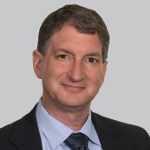 Mark Papermaster, Chief Technology Officer and Senior Vice President of Technology and Engineering at AMD Mark Papermaster, Chief Technology Officer and Senior Vice President of Technology and Engineering at AMD |
|
Episode 14: Q&A with Margaret Martonosi, Hugh Trumbull Adams Professor of Computer Science at Princeton University; Director of the Keller Center for Innovation and Engineering Education; IEEE Member and Fellow Biological computation, quantum computing, photonics, Moore's Law, and semiconductor technology are just a few of the topics Margaret Martonosi dives into during this IEEE Rebooting Computing podcast. Margaret is the Hugh Trumball Adams Professor of Computer Science at Princeton University and is the Director of the Keller Center for Innovation and Engineering Education. She has also been an IEEE member for 30 years and an IEEE Fellow for 8 years. Margaret shares why approaching the reboot of computing is an exciting time and why she believes 'where there is big change, there's big opportunities to find new ideas and do things differently'. Additionally, Margaret shares her work and research at Princeton University and shares why she’s an IEEE member and why others should join as well. Listen to Episode 14 (MP3, 18 MB) |
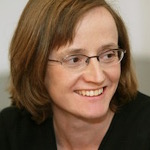 Margaret Martonosi, Hugh Trumbull Adams Professor of Computer Science at Princeton University; Director of the Keller Center for Innovation and Engineering Education; IEEE Member and Fellow Margaret Martonosi, Hugh Trumbull Adams Professor of Computer Science at Princeton University; Director of the Keller Center for Innovation and Engineering Education; IEEE Member and Fellow |
|
Episode 13: Q&A with Marilyn Wolf, Professor; Georgia Research Alliance Eminent Scholar; Rhesa “Ray” S. Farmer, Jr., Distinguished Chair in Embedded Computing Systems at Georgia Tech With the recent release of the IEEE 2017 Edition of the International Roadmap for Devices and Systems (IRDS™) helping shape an evolving computational world, this IEEE Rebooting Computing podcast features Marilyn Wolf, Farmer Distinguished Chair of Embedded Computing at Georgia Tech and Eminent Scholar at the Georgia Research Alliance, discussing a broad range of computational needs that will help advance computing beyond Moore’s Law. Applications such as Artificial Intelligence and Augmented Reality, as well as the ever-expanding deployment of sensors tied to the Internet of Things, and cyber-physical systems such as connected vehicles, will bring forth issues related to safety and security that will need to be addressed as humanity strives to harness computational power for the future. Listen to Episode 13 (MP3, 22 MB) |
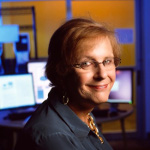 Marilyn Wolf, Professor; Georgia Research Alliance Eminent Scholar; Rhesa “Ray” S. Farmer, Jr., Distinguished Chair in Embedded Computing Systems at Georgia Tech Marilyn Wolf, Professor; Georgia Research Alliance Eminent Scholar; Rhesa “Ray” S. Farmer, Jr., Distinguished Chair in Embedded Computing Systems at Georgia Tech |
|
Episode 12: Q&A with Ryan Dailey, Low-Power Image Recognition Challenge (LPIRC) 2017 Moderator As 2017’s Low-Power Image Recognition Challenge (LPIRC) Moderator, Ryan Dailey has unique insights into the ins and outs of this challenge, its long and short-term goals, and how these goals could help to not only improve image recognition on mobile platforms, but also improve technology as a whole. LPIRC, coming up on 18 June 2018 in Salt Lake City, Utah, encourages competitors to use different ways of looking at power consumption in computational devices while using visual recognition to identify as many images as possible. In this podcast, Ryan also discusses his views on the future of computing, what he thinks of artificial intelligence and how he believes computing requires us to think outside of the box. Listen to Episode 12 (MP3, 24 MB) |
 Ryan Dailey, Low-Power Image Recognition Challenge (LPIRC) 2017 Moderator Ryan Dailey, Low-Power Image Recognition Challenge (LPIRC) 2017 Moderator |
|
Episode 11: Q&A with Michael Garner, President of Nanomaterial Applications, Properties, Processes, and Assessments at Garner Nanotechnology Solutions and Chair of the Outside System Connectivity Team of the IEEE International Roadmap of Devices and Systems Neuromorphic architecture, quantum computing, specialized processors, adaptive learning and artificial intelligence are just a few of the topics Michael Garner dives into in this Rebooting Computing podcast episode. Michael is the President of Nanomaterial Applications, Properties, Processes, and Assessments at Garner Nanotechnology Solutions and is the Chair of the Outside System Connectivity Team of the IEEE International Roadmap for Devices and Systems. Michael shares his thoughts on the future of computing, how adaptive learning will play a key role in the next phase beyond Moore's Law, how important it is to reboot computing, and much more. Listen to Episode 11 (MP3, 22 MB) |
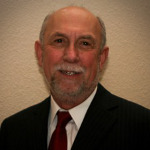 Michael Garner, President of Nanomaterial Applications, Properties, Processes, and Assessments at Garner Nanotechnology Solutions and Chair of the Outside System Connectivity Team of the IEEE International Roadmap of Devices and Systems Michael Garner, President of Nanomaterial Applications, Properties, Processes, and Assessments at Garner Nanotechnology Solutions and Chair of the Outside System Connectivity Team of the IEEE International Roadmap of Devices and Systems |
|
Episode 10: Q&A with Paolo Gargini, International Roadmap for Devices and Systems chair In this IEEE Rebooting Computing podcast, Paolo Gargini, chair of the International Roadmap for Devices and Systems, gives us an inside look at the IRDS™ Roadmap, how it will come into motion in the near future, and the steps the Initiative plans to take to make this an actionable Roadmap. Paolo also dives into the rich history surrounding the IRDS™ Roadmap and where it will go in the years to come. Further, Paolo shares his insights into what the future might hold and the types of computing he believes will usher us into a new era that goes beyond Moore's Law. Listen to Episode 10 (MP3, 48 MB) |
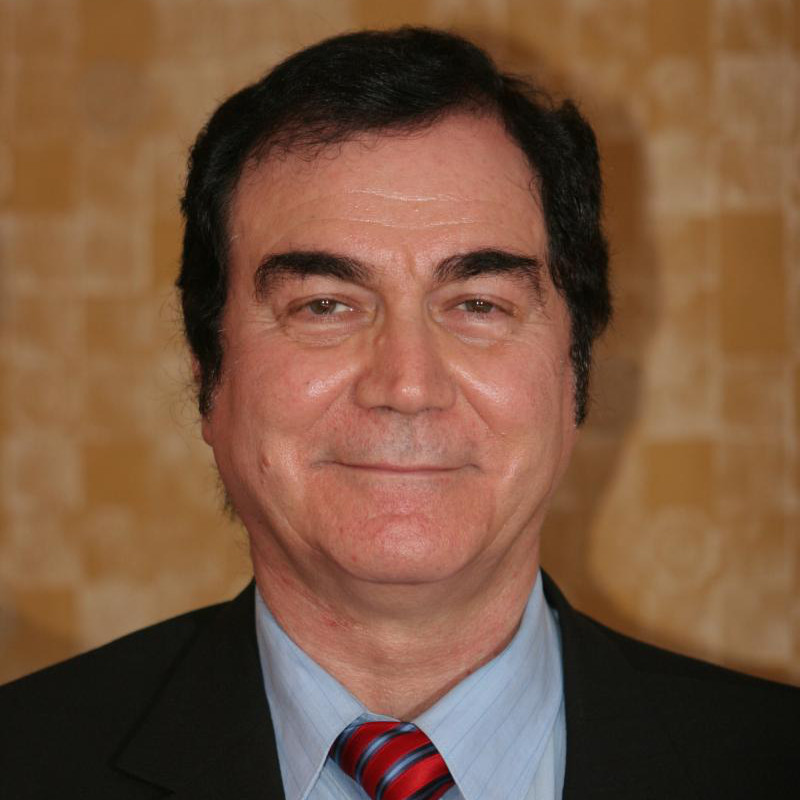 Paolo Gargini, International Roadmap for Devices and Systems chair Paolo Gargini, International Roadmap for Devices and Systems chair |
|
Episode 9: Q&A with Dejan Milojicic, IEEE Rebooting Computing Co-chair and Distinguished Technologist at Hewlett Packard Labs With uncertainty surrounding the approach of Moore’s Law, members of academia, industry and the government are exploring innovations and collaborating on the development of solutions to advance the computing world towards a new future. In this podcast, IEEE Rebooting Computing Co-chair, Distinguished Technologist at Hewlett Packard Labs, and IEEE Fellow Dejan Milojicic shares his 360-degree view on Rebooting Computing. While much focus has been on new hardware, Dejan shares his insights on how software also needs to address programmability, as well leverage performance optimization and enable virtualization and security as we move beyond Moore’s Law. Listen to Episode 9 (MP3, 22 MB) |
 Dejan Milojicic, IEEE Rebooting Computing Co-chair and Distinguished Technologist at Hewlett Packard Labs Dejan Milojicic, IEEE Rebooting Computing Co-chair and Distinguished Technologist at Hewlett Packard Labs |
|
Episode 8: Q&A with Tom Conte, IEEE Rebooting Computing Co-chair and Professor for the Georgia Tech Schools of Computer Science and Electrical & Computer Engineering Tom Conte, a leading authority on the computing industry, provides a summary of the 2nd Annual Rebooting Computing Week held 6-11 November 2017 in Washington DC. As the IEEE Rebooting Computing co-chair and professor for the Georgia Tech schools of Computer Science and Electrical & Computer Engineering, Tom Conte offers insights on the issues and challenges of moving beyond Moore’s Law, and explains how the IEEE Rebooting Computing Initiative provides a framework for collaboration that will drive advancements and develop solutions that will fundamentally change the computing world of the future. Listen to Episode 8 (MP3, 16 MB) |
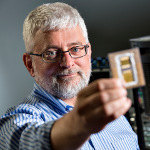 Tom Conte, IEEE Rebooting Computing Co-chair and Professor for the Georgia Tech Schools of Computer Science and Electrical & Computer Engineering Tom Conte, IEEE Rebooting Computing Co-chair and Professor for the Georgia Tech Schools of Computer Science and Electrical & Computer Engineering |
|
Episode 7: Q&A with Robert Voigt, IEEE Senior Member and Product Area Architect for Transformational Computing for Northrop Grumman Northrop Grumman is known as the fifth-largest defense contractor in the world and employs more than 68,000 people worldwide. And as our podcast episodes continue, we had the opportunity to interview Robert Voigt, IEEE Senior Member and Product Area Architect for Transformational Computing for Northrop Grumman. According to Mr. Voigt, there are three types of computing that have potential to get the industry beyond Moore's Law and bridge the gap between where we are today and where we need to be tomorrow: quantum computing, neuromorphic computing, and superconducting computing. What's his favorite? Listen and discover. Listen to Episode 7 (MP3, 9 MB) |
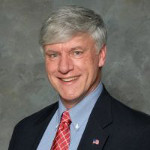 Robert Voigt, IEEE Senior Member and Product Area Architect for Transformational Computing for Northrop Grumman Robert Voigt, IEEE Senior Member and Product Area Architect for Transformational Computing for Northrop Grumman |
|
Episode 6: Q&A with Stan Williams, IEEE Rebooting Computing Executive Committee Member and Founding Director of the Quantum Science Research Laboratory for HP Labs With Moore's Law ending soon, Stan Williams is at-the-ready to hurdle the challenges to bring about the future of computing and allow the industry to pave new technology roads. Mr. Williams is an executive committee member for the IEEE Rebooting Computing Initiative and the founding director of the Quantum Science Research Laboratory for HP Labs--just the kind of experience required to help computing go beyond Moore's Law and improve computer energy efficiency. And one of the cornerstone efforts to make new technology advancements is neuromorphic computing, something Mr. Williams expresses as a means to the industry's future. While at the 2016 IEEE Technology Time Machine Symposium, Mr. Williams joined other IEEE Rebooting Computing Executive Committee members to share with conference attendees their thoughts on the future of computing and what's next for the initiative. This podcast episode expounds on what Mr. Williams and others had to say while in San Diego for this unique symposium. Listen to Episode 6 (MP3, 8 MB) |
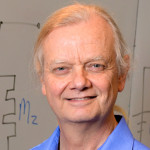 Stan Williams, IEEE Rebooting Computing Executive Committee Member and Founding Director of the Quantum Science Research Laboratory for HP Labs Stan Williams, IEEE Rebooting Computing Executive Committee Member and Founding Director of the Quantum Science Research Laboratory for HP Labs |
|
SPECIAL EDITION - Q&A with Dr. Erik DeBenedictis, member of the technical staff at Sandia National Labs; Dr. Matthew Marinella, Principal Member of the Technical Staff at Sandia National Labs; and Dr. Geoffrey Burr, Principal Research Staff Member for IBM For this special edition of our podcast, we are taking a look at the development work on the International Roadmap for Devices and Systems (IRDS™). IEEE is taking a lead role in building a comprehensive, end-to-end view of the computing ecosystem, including devices, components, systems, architecture, and software. In May 2016, IEEE announced the formation of the IRDS™ under the sponsorship of IEEE Rebooting Computing. And in March 2017, the IRDS™ team published nine foundational white papers that outline the vital and technical components required to create an official roadmap--something we hope to see in late 2017 or early 2018. To help us better understand the IRDS™ program and the roadmap it will soon produce, we interviewed three computing experts: Dr. Erik DeBenedictis and Dr. Matthew Marinella, part of the technical staff at Sandia National Labs and Dr. Geoffrey Burr with IBM. Fresh off their panel at the 2017 IEEE International Reliability Physics Symposium in Monterey, California--part of the "Application Benchmarking, Systems and Architecture, Emerging Research Devices" moderated by IEEE Future Directions Senior Director Bill Tonti--the experts map it out for us in this podcast episode. Listen to the Special Edition (MP3, 32 MB) |
Dr. Erik DeBenedictis, member of the technical staff at Sandia National Labs; Dr. Matthew Marinella, Principal Member of the Technical Staff at Sandia National Labs; and Dr. Geoffrey Burr, Principal Research Staff Member for IBM |
|
Episode 5: Q&A with Yung-Hsiang Lu, Associate Professor at Purdue University's School of Electrical and Computer Engineering As the lead for the 2017 Low-Power Image Recognition Challenge (LPIRC) in Hawaii, Purdue University Professor Yung-Hsiang Lu is blazing a trail for IEEE Rebooting Computing and its mission to reinvent the computer. And because mobile systems are the primary devices for communication and visual data acquisition, the LPIRC brings fresh minds to this ever-evolving landscape of visual recognition in mobile applications--and computing systems aren't far off the trail. This podcast interview with Professor Lu captures the plan for the upcoming LPIRC and the program in general. In addition, Professor Lu shares his perspective on the IEEE Rebooting Computing Initiative's mission and vision. But ultimately we see his role as educator and facilitator for the LPIRC and get a front-row seat to discovering how future generations are collaborating on how to change the industry. Could this be where Moore's Law finds new life? We'll let Professor Lu answer that question. Listen to Episode 5 (MP3, 14 MB) |
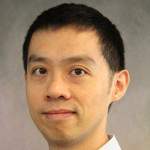 Yung-Hsiang Lu, Associate Professor at Purdue University's School of Electrical and Computer Engineering Yung-Hsiang Lu, Associate Professor at Purdue University's School of Electrical and Computer Engineering |
|
Episode 4: Q&A with Arvind Kumar, Manager and Research Staff Member for IBM's Research Division MIT-educated and employed by IBM's research division is Arvind Kumar--the general chair for the 2017 IEEE International Conference on Rebooting Computing (ICRC). As the flagship event for the IEEE Rebooting Computing Initiative, ICRC is a three-day conference packed with high-profile keynote speakers, presentations and panels. Mr. Kumar played a big role in the inaugural ICRC, which boasted stand-room-only events; it was a rousing success for IEEE. From his perspective, there are two big computing trends that will shape the future of the industry. The first has to do with exponential computing performance through Moore's Law scaling. And the second is today's trends on computing, which are vastly different from years' past; this includes the emergence of transactional computing, cognitive computing and high performance computing. Mr. Kumar also notes the popularity of neuromorphic computing, which got a lot of attention at the 2016 ICRC. Nevertheless, Mr. Kumar and his colleagues agree: the computing industry is in dire need of a reset. Listen to Episode 4 (MP3, 9 MB) |
 Arvind Kumar, Manager and Research Staff Member for IBM's Research Division Arvind Kumar, Manager and Research Staff Member for IBM's Research Division |
|
Episode 3: Q&A with Dr. Bill Tonti, IEEE Future Directions Senior Director To accurately predict the future of an industry, it's best to poll the industry's greatest minds to receive helpful explanations of past successes and failures, obstacles to eliminate, and realistic approaches to seemingly impossible innovation. To that end, we interviewed Bill Tonti, Senior Director of IEEE Future Directions. Dr. Tonti focuses his time on bringing new technologies from incubation periods to fully baked IEEE societies that later define how products and services are formed. On Dr. Tonti's ever-growing to-do list, helping IEEE Rebooting Computing reach its goal of creating a new foundation for the computing industry is a top priority. The initiative is pursuing the horizon beyond Moore's Law--allowing the computing industry to continue giving consumers access to devices and services that otherwise wouldn't be mass-market affordable. Our interview with Dr. Tonti reveals some possible solutions to many of the industry's greatest problems. Listen to Episode 3 (MP3, 29 MB) |
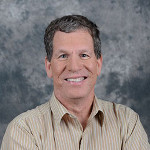 Dr. Bill Tonti, IEEE Future Directions Senior Director Dr. Bill Tonti, IEEE Future Directions Senior Director |
|
Episode 2: Q&A with Elie Track, IEEE Rebooting Computing Co-chair and CEO of nVizix Sharing the IEEE Rebooting Computing chair responsibilities with Tom Conte is Elie Track, CEO of nVizix, computing industry knowledge expert and thought leader. Mr. Track explains the "why" behind the initiative and the reasons behind its existence, which ultimately will help define the answers for tomorrow's computing challenges and limitations. Additionally, Mr. Track offers his view on current computing technologies--particularly using his expertise in the superconducting electronics industry. Neuromorphic computing is one of those new technologies, using the brain as a blueprint to help reach new frontiers in computing performance. Listen to Episode 2 (MP3, 22 MB) |
 Elie Track, CEO of nVizix, computing industry knowledge expert and thought leader Elie Track, CEO of nVizix, computing industry knowledge expert and thought leader |
|
Episode 1: Q&A with Tom Conte, IEEE Rebooting Computing Co-chair and Professor for the Georgia Tech schools of Computer Science and Electrical & Computer Engineering As the IEEE Rebooting Computing co-chair and professor for the Georgia Tech schools of Computer Science and Electrical & Computer Engineering, Tom Conte has his finger on the pulse of the computing industry. In this podcast episode, Mr. Conte provides a brief history of the issues with today's computing performance and tomorrow's solutions--as we see the future expiration of Moore's Law. The mission and vision of the IEEE Rebooting Computing Initiative is to invite industry experts to solve this problem through cooperation and consensus. And with Mr. Conte at the helm, the initiative and its supporters are poised to work together to go beyond Moore's Law and thus fundamentally change the computing industry forever. Listen to Episode 1 (MP3, 16 MB) |
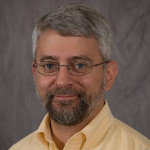 Tom Conte, IEEE Rebooting Computing co-chair and professor for the Georgia Tech schools of Computer Science and Electrical & Computer Engineering Tom Conte, IEEE Rebooting Computing co-chair and professor for the Georgia Tech schools of Computer Science and Electrical & Computer Engineering |


